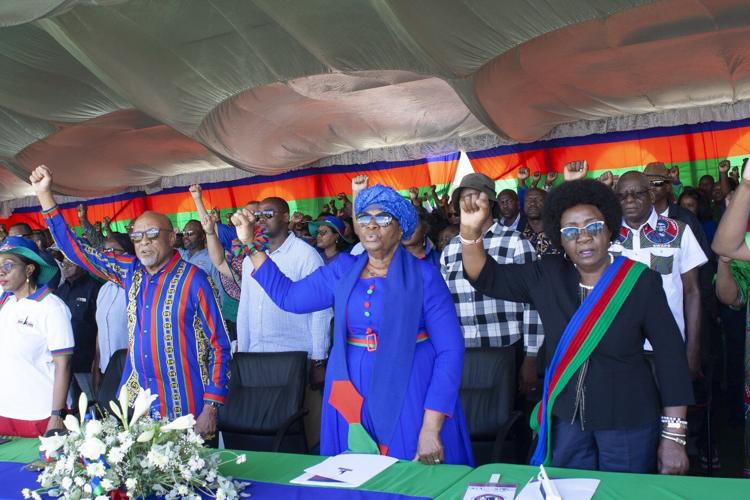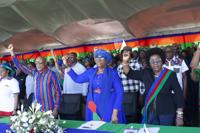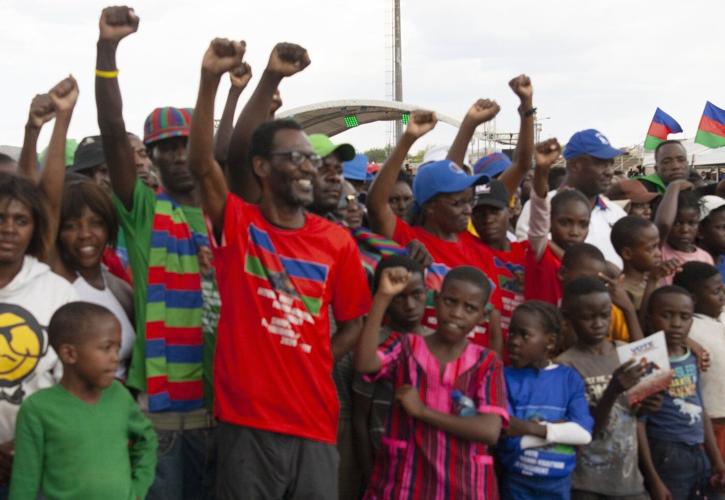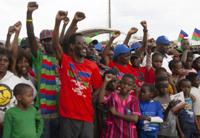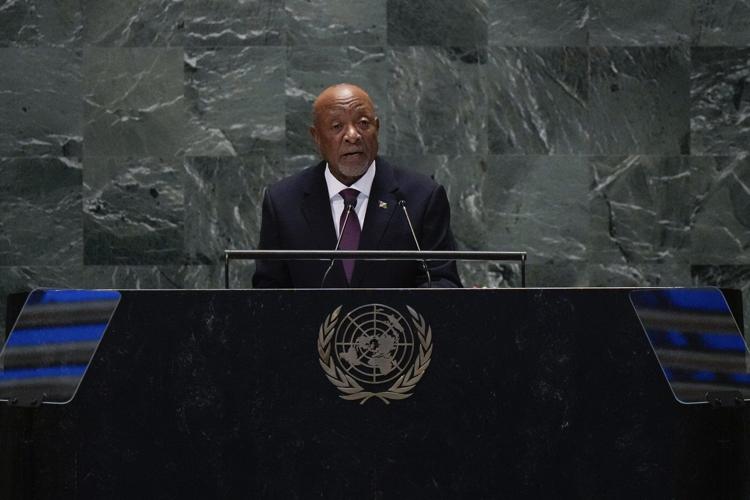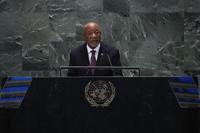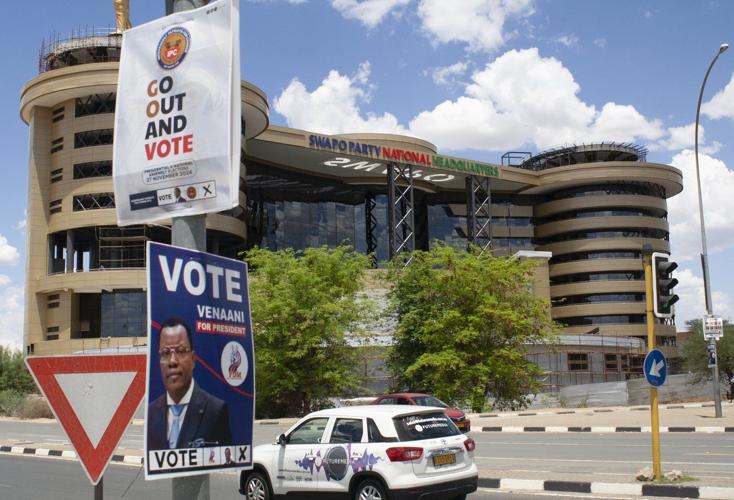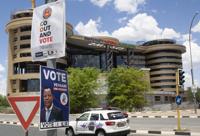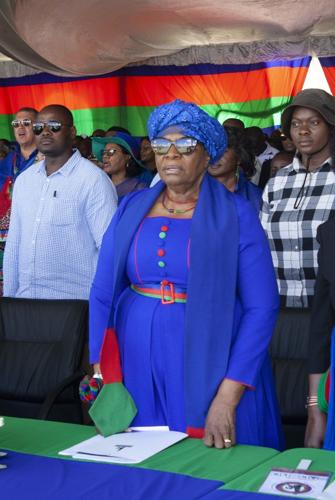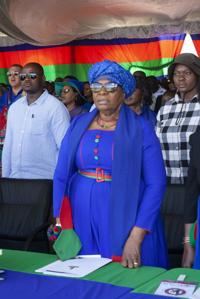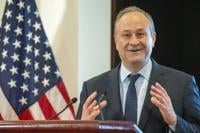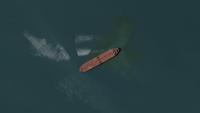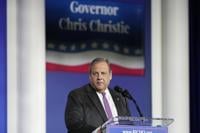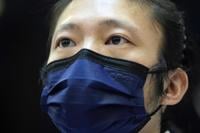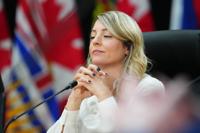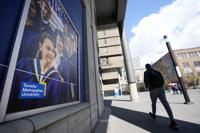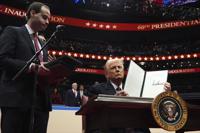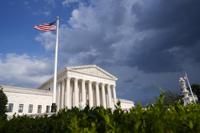OSHAKATI, Namibia (AP) — Namibia's Vice President Netumbo Nandi-Ndaitwah could become the country’s first female president if she wins the presidential election Wednesday.
At least 1.4 million people, or about half of the population, have registered to vote in the elections, with 15 political parties running for president and seats in the ��ɫֱ�� Assembly.
Results from special early polls held for 's foreign missions, seamen and security services announced by the Electoral Commission of Namibia this month indicate Nandi-Ndaitwah and her party, the South West Africa People’s Organization, or SWAPO, are in the lead.
SWAPO has governed the southwest African country since its independence from South Africa's apartheid minority government in 1990.
But in 2019, the party lost its two-thirds majority in the ��ɫֱ�� Assembly for the first time since 1994. Its dismal electoral performance has been widely attributed to allegations of corruption and money laundering in the Namibian fishing industry. Two cabinet ministers were arrested, and businessmen connected to the ministers were also convicted and imprisoned.
Political analyst Henning Melber, a professor at the University of Pretoria and the University of the Free State, believes SWAPO and Nandi-Ndaitwah must take the 2019 election results as a warning even though they appear favored to win the elections.
Melber said the party needs to attract support from younger voters who do not feel a link to the party's history of liberation struggles — a challenge also shared by Africa's other former liberation movements, such as South Africa's African ��ɫֱ�� Congress.
“It looks like there is no way back to regain such dominance. The process of erosion of legitimacy as a former liberation movement has advanced too much," he said.
He added that the “born-frees” — a term for children born after their country's liberation — will not vote based on emotions like the older generations did, but will do so based on delivery and governance.
Nandi-Ndaitwah, 72, has promised to create more jobs and tackle the 20% unemployment rate for young people and graduates. She has pledged to spend approximately 85 billion Namibian dollars ($4.7 billion) over the next five years to create more than 500,000 jobs, a goal that her critics call unrealistic.
Issues affecting women, including reproductive rights, equal pay and healthcare, are also likely to rank high for voters.
If she becomes president, Nandi-Ndaitwah would follow in the footsteps of Liberia’s Ellen Johnson Sirleaf, who made history when she became the continent’s first elected female president in 2005, as well as Malawi’s Joyce Banda and Samba Pranza of the Central African Republic.
Erika Thomas, a political science lecturer at the University of Namibia, said should Nandi-Ndaitwah be elected as president of Namibia, she must strive to be independent, transparent and accountable.
“She must also try to push for policies and legislation frameworks for women participation and to bring more women into the political structures,” Thomas said.
SWAPO will face competition from the Independent Patriots for Change, led by former dentist Panduleni Itula, and university professor Job Amupanda's Affirmative Repositioning party.
Political parties contesting the elections wrapped up their campaigns with final rallies this weekend.
Elections in southern Africa this year have delivered ground-breaking changes to the region's political landscape, with the losing its 30-year parliamentary majority and after 58 years in power.
In Mauritius, considered one of the most stable democracies in Africa, the opposition .
Disputed election results in Mozambique, which saw the ruling Frelimo party declared the winner, have led to that have seen at least 30 people killed.

